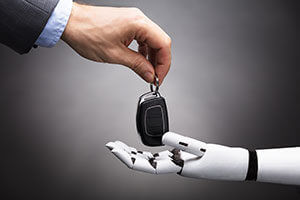Autonomous Cars and Personal Injury
Pedestrian Fatality from Self-Driving Uber Crash

Cities Place a Moratorium on Self-Driving Car Testing
One of the quickest responses from several cities to news of the crash was to place a moratorium on any new autonomous vehicle tests. This means that cities such as San Francisco, Phoenix, Pittsburgh, and Toronto—cities that previously permitted self-driving car testing—will no longer be involved in these tests. At the same time, however, a number of other cities have continued to focus on self-driving car tests. They emphasize that in time, these vehicles can reduce the risk of accidents and fatalities; lives lost now could save lives in the future.
What do we know about the accident and how it occurred? According to the report, the Uber car was in autonomous mode when the crash occurred. This means the car was driving itself while a human sat behind the wheel. This is a common practice: autonomous cars can be tested on some city streets, but a human must still be in the car while the vehicle is in motion as a sort of “failsafe.” The collision happened near an intersection with a number of lanes in every direction at approximately 10 p.m.. This accident raises serious concerns about the safety of autonomous technology.
Some Investors and Researchers Maintain Faith in Autonomous Technology
The crash currently is being investigated, and officials have not yet said with certainty how the accident happened. As we noted, some cities have placed a moratorium on autonomous technology testing in response to the collision. But many other places continue moving forward with plans for testing self-driving cars. As an example, additional rules will come into effect in California. The rules allow technology developers to test and offer cars without a driver behind the wheel if they meet various safety, notification, and other criteria.
However, critics say developers are rushing into these tests, arguing that these vehicles are not safe for use on our public roads. Shockingly, “supporters say fatalities are an inevitable part of the learning process.” This attitude is unacceptable, especially given the availability of test tracks, simulations, and technology testing. If you are injured by an autonomous vehicle, you deserve to be compensated for your injuries. These companies need to answer for their technology. Did they do enough before putting that car on the road? Was the failsafe driver sufficiently trained? There are so many questions we need answers to.
According to a robotics expert at Duke University, there are serious problems with self-driving cars as they currently exist. She explained that the computer-vision systems in these vehicles are “deeply flawed” and “incredibly brittle.” This suggests that additional accident and fatalities could occur.
Contact a Connecticut Personal Injury Attorney
If you have questions about self-driving cars or concerns about filing an accident claim, an experienced Connecticut personal injury lawyer can speak with you today.
Contact StangerLaw LLC for more information about the services we provide to clients in West Hartford and throughout the state.